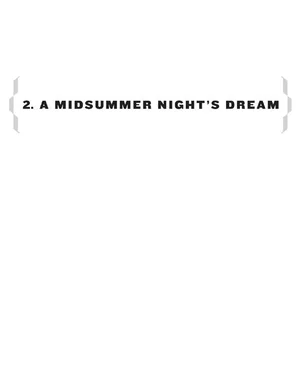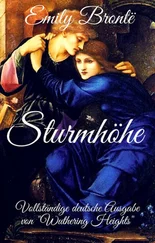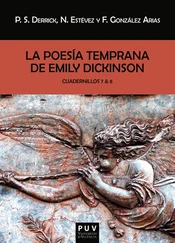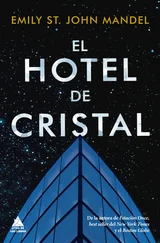Emily Mandel - Station Eleven
Здесь есть возможность читать онлайн «Emily Mandel - Station Eleven» весь текст электронной книги совершенно бесплатно (целиком полную версию без сокращений). В некоторых случаях можно слушать аудио, скачать через торрент в формате fb2 и присутствует краткое содержание. Год выпуска: 2014, ISBN: 2014, Издательство: Knopf, Жанр: Старинная литература, на английском языке. Описание произведения, (предисловие) а так же отзывы посетителей доступны на портале библиотеки ЛибКат.
- Название:Station Eleven
- Автор:
- Издательство:Knopf
- Жанр:
- Год:2014
- ISBN:9780385353311
- Рейтинг книги:4 / 5. Голосов: 1
-
Избранное:Добавить в избранное
- Отзывы:
-
Ваша оценка:
- 80
- 1
- 2
- 3
- 4
- 5
Station Eleven: краткое содержание, описание и аннотация
Предлагаем к чтению аннотацию, описание, краткое содержание или предисловие (зависит от того, что написал сам автор книги «Station Eleven»). Если вы не нашли необходимую информацию о книге — напишите в комментариях, мы постараемся отыскать её.
Station Eleven — читать онлайн бесплатно полную книгу (весь текст) целиком
Ниже представлен текст книги, разбитый по страницам. Система сохранения места последней прочитанной страницы, позволяет с удобством читать онлайн бесплатно книгу «Station Eleven», без необходимости каждый раз заново искать на чём Вы остановились. Поставьте закладку, и сможете в любой момент перейти на страницу, на которой закончили чтение.
Интервал:
Закладка:
“A PhD,” Tesch says. “How conventional. And you”—she’s turned to Miranda—“how’s your work going?”
“It’s going very well, thank you.” Miranda spends most of her time working on the Station Eleven project. She knows from the gossip blogs that people here see her as an eccentric, the actor’s wife who inks mysterious cartoons that no one’s ever laid eyes on—“My wife’s very private about her work,” Arthur says in interviews—and who doesn’t drive and likes to go for long walks in a town where nobody walks anywhere and who has no friends except a Pomeranian, although does anyone really know this last part? She hopes not. Her friendlessness is never mentioned in gossip blogs, which she appreciates. She hopes she isn’t as awkward to other people as she feels to herself. Elizabeth Colton is looking at her again in that golden way of hers. Elizabeth’s hair is always unbrushed and always looks gorgeous that way. Her eyes are very blue.
“It’s brilliant,” Arthur says. “I mean that. Someday she’ll show it to the world and we’ll all say we knew her when.”
“When will it be finished?”
“Soon,” Miranda says. It’s true, it won’t be so long now. She has felt for months that she’s nearing the end of something, even though the story has spun off in a dozen directions and feels most days like a mess of hanging threads. She tries to meet Arthur’s gaze, but he’s looking at Elizabeth.
“What do you plan to do with it once it’s done?” Tesch asks.
“I don’t know.”
“Surely you’ll try to publish it?”
“Miranda has complicated feelings on the topic,” Arthur says. Is it Miranda’s imagination, or is he going out of his way to avoid looking at her directly?
“Oh?” Tesch smiles and arches an eyebrow.
“It’s the work itself that’s important to me.” Miranda is aware of how pretentious this sounds, but is it still pretentious if it’s true? “Not whether I publish it or not.”
“I think that’s so great,” Elizabeth says. “It’s like, the point is that it exists in the world, right?”
“What’s the point of doing all that work,” Tesch asks, “if no one sees it?”
“It makes me happy. It’s peaceful, spending hours working on it. It doesn’t really matter to me if anyone else sees it.”
“Ah,” Tesch says. “Very admirable of you. You know, it reminds me of a documentary I saw last month, a little Czech film about an outsider artist who refused to show her work during her lifetime. She lived in Pra ha, and—”
“Oh,” Clark says, “I believe when you’re speaking English, you’re allowed to refer to it as Prague.”
Tesch appears to have lost the power of speech.
“It’s a beautiful city, isn’t it?” Elizabeth has the kind of smile that makes everyone around her smile too, unconsciously.
“Ah, you’ve been there?” Clark asks.
“I took a couple of art history classes at UCLA a few years back. I went to Prague at the end of the semester to see a few of the paintings I’d read about. There’s such a weight of history in that place, isn’t there? I wanted to move there.”
“For the history?”
“I grew up in the exurbs of Indianapolis,” Elizabeth says. “I live in a neighborhood where the oldest building is fifty or sixty years old. There’s something appealing about the thought of living in a place with some history to it, don’t you think?”
“So tonight,” Heller says, “if I’m not mistaken, is tonight the actual wedding anniversary?”
“It certainly is,” Arthur says, and glasses are raised. “Three years.” He’s smiling past Miranda’s left ear. She glances over her shoulder, and when she looks back he’s shifted his gaze somewhere else.
“How did you two meet?” Heller’s wife asks. The thing about Hollywood, Miranda realized early on, is that almost everyone is Thea, her former colleague at Neptune Logistics, which is to say that almost everyone has the right clothes, the right haircut, the right everything, while Miranda flails after them in the wrong outfit with her hair sticking up.
“Oh, it’s not the most exciting how-we-met story in the world, I’m afraid.” A slight strain in Arthur’s voice.
“I think how-we-met stories are always exciting,” Elizabeth says.
“You’re much more patient than I am,” Clark says.
“I don’t know if exciting is the word I’d use,” Heller’s wife says. “But there’s certainly a sweetness about them, about those stories I mean.”
“No, it’s just, if everything happens for a reason,” Elizabeth persists, “as personally, I believe that it does, then when I hear a story of how two people came together, it’s like a piece of the plan is being revealed.”
In the silence that follows this pronouncement, a caterer refills Miranda’s wine.
“We’re from the same island,” Miranda says.
“Oh, that island you told us about,” a woman from the studio says, to Arthur. “With the ferns!”
“So you’re from the same island, and? And?” Heller now, looking at Arthur. Not everyone is listening. There are pools and eddies of conversation around the table. Heller’s tan is orange. There are rumors that he doesn’t sleep at night. On the other side of the glass doors, Luli shifts position to gain a better view of the dropped strawberry.
“Excuse me a moment,” Miranda says, “I’m just going to let the dog out. Arthur tells this story much better than I do.” She escapes into the sunroom, through a second set of French doors into the back lawn. Freedom! Outside, the quiet night. Luli brushes against her ankles and fades out into the darkness. The backyard isn’t large, their property terraced up the side of a hill, leaves crowding in around a small launchpad of lawn. The gardener came today in preparation for the dinner party, and the air carries notes of damp soil and freshly cut grass. She turns back toward the dining room, knowing that they can’t see her past their own overlapping reflections on the glass. She left both sets of doors open just slightly in order to hear the conversation, and now Arthur’s voice carries into the yard.
“So, you know, dinner goes well, and then the next night,” he says, “I’m in the Hotel Le Germain after twelve hours on set, in my room waiting for Miranda to come by so I can take her out to dinner again, second night in a row, just kind of semi-comatose in front of the television, there’s a knock at the door, and— Voilà! There she is again, but this time? One small difference.” He pauses for effect. She can see Luli again now, following a mysterious scent at the far end of the lawn. “This time, I’ll be damned if the girl hasn’t got her worldly belongings with her.”
Laughter. The story’s funny, the way he tells it. She shows up on his hotel room doorstep with two suitcases, having walked across the lobby with such confidence that anyone would think she was a guest there. (The best advice her mother ever gave her: “Walk in like you own the place.”) She says something vague to Arthur about how she’s moving into a hotel herself and perhaps he wouldn’t mind if she just leaves the suitcases here while they go to dinner, but he’s already in love and he kisses her, he takes her to bed and they don’t leave the hotel at all that night, he invites her to stay a few days and she never moves out and now here we are in Los Angeles.
He doesn’t tell the whole story. He doesn’t tell the crowd assembled at the table that when she went back to the apartment the next morning for a painting she’d decided she wanted, a watercolor left behind on the drafting table, Pablo was awake and waiting for her, drunk and weeping, and she returned to the hotel with a bruise on her face. Arthur doesn’t tell them that he took her with him to the set that morning and passed her off as his cousin, that she called in sick to work and spent the day in his trailer reading magazines and trying not to think about Pablo while Arthur came and went in his costume, which involved a long red velvet cape and a crown. He looked magnificent. Every time he looked at her that day, something clenched in her chest.
Читать дальшеИнтервал:
Закладка:
Похожие книги на «Station Eleven»
Представляем Вашему вниманию похожие книги на «Station Eleven» списком для выбора. Мы отобрали схожую по названию и смыслу литературу в надежде предоставить читателям больше вариантов отыскать новые, интересные, ещё непрочитанные произведения.
Обсуждение, отзывы о книге «Station Eleven» и просто собственные мнения читателей. Оставьте ваши комментарии, напишите, что Вы думаете о произведении, его смысле или главных героях. Укажите что конкретно понравилось, а что нет, и почему Вы так считаете.












